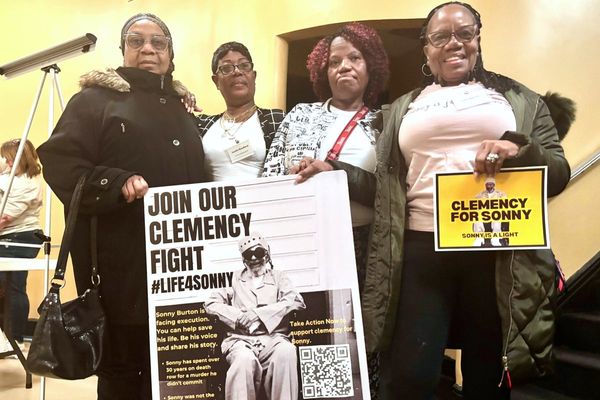Six months after Russia invaded Ukraine, here is a different take on how to help Kyiv win the war.
On the military side, Ukraine’s brave fighters have pushed the aggressor into a stalemate. But Vladimir Putin remains determined to destroy the Ukrainian state while committing hideous war crimes. The war is likely to drag on indefinitely, because Ukrainians still don’t have the long-range weapons needed to win it but refuse to bow to Kremlin control.
Yet a second, less visible war is being waged on the civilian side. Cities and towns liberated from Russian control must rebuild from Russia’s deliberate destruction of civilian infrastructure. The Kyiv School of Economics estimates that more than 130,000 civilian buildings — city halls, universities, schools, hospitals and clinics, houses, apartment blocks, malls, office buildings, and airports — have been targeted by Russian missiles and shells.
Mayors and city council members can’t wait until the war ends to start rebuilding. They can’t attract refugees back unless schools are repaired and reopened, and jobs restored. They can’t base their hopes on international lenders providing the estimated $200 billion or more the central government would need for reconstruction.
So rather than wait for top-down funds, many local leaders are looking for horizontal aid — relationships with sister cities and towns in Europe and the United States, or with private institutions that want to help Ukraine. “This kind of horizontal project builds ties between communities,” said Daria Kaneliuk, the executive director of the Anti-Corruption Action Center in Kyiv, who has been working to develop such ties. “A lot of people [abroad] want to help, but they don’t know how.”
To explore this idea, I recently spent a day with Oleksandr Lomako, the secretary of the city council of Chernihiv, a formerly prosperous and attractive city of 300,000, around 80 miles from Kyiv and 55 miles from the Russian border.
Before the invasion, the city had a highly developed IT sector providing thousands of well-paying jobs. It had become a tourist destination for foreign and local visitors, with its refurbished parks and historic buildings. “We were very proud of this,” Lomako told me in his temporary downtown office. “Then came the Feb. 24 invasion.”
Two-thirds of the residents fled. Aware that the Russians were targeting city officials, Lomako sent his wife and young children to safety in Europe. But many Chernihiv citizens have now returned, bringing the population back to around 200,000.
However, according to Lomako, the Russians destroyed 80% of the city’s schools, 1,000 private buildings, a stadium, the library, the post office, the largest hotel, bridges, and 60% of the factories. Nearly every home in nearby villages I visited had been damaged.
The city is struggling to survive.
To be clear, there is no shortage of grit in Chernihiv. The Russians had hoped to take the city as a key way station for a ground attack on Kyiv. Their troops besieged Chernihiv on three sides for 39 days, destroying city buildings with bombs and powerful Iskander missiles.
But the city was saved by the courage and skill of the vastly outnumbered Ukrainian army forces already based in the city, along with civilian volunteers. “They knew they had a 50% chance of being killed,” said Lomako, “but they were ready to die for Chernihiv.” The Russians finally pulled back.
Lomako walked me around a complex of nine-story apartment buildings, where friends of his used to live, that was struck with half-ton bombs. Fifty people died, including those standing in line at a pharmacy and food store within the complex.
He also showed me the new microbrewery and restaurant that a local entrepreneur had just opened after spending months researching similar operations abroad in order to develop his own brand. “All destroyed in one moment,” he said grimly.
“I could not imagine that Russia would bomb civilian infrastructure,” he added, “but after the 50 died, I understood that anything is possible.” What made these crimes even more incomprehensible is that Chernihiv is a Russian-speaking city, which used to have close trade relations with nearby Russia and Belarus.
Yet Lomako can’t afford to focus on the $4.2 billion he estimates it would cost to rebuild.
His main goal is to find opportunities to do basic repairs to schools, housing units, and factories that can be restored to usable conditions. “Some work must start immediately,” he said, “to give people the incentive to come back.”
That is why he believes that “horizontal connections could help right now. There are a lot of ordinary people in the U.S. and Canada who want to help, but maybe don’t know the way. We can establish contacts between schools, hospitals, and city projects.”
Lomako proposes that U.S. cities cease sister-city relationships with Russian and Belarusian cities and transfer those ties to Ukraine. Chernihiv already has sister-city relationships with some small European towns and with Portland, Ore. But he envisions expanded city-to-city ties that could link up hospitals, churches, schools, universities, or city officials — for rebuilding advice and fund-raising.
Kaneliuk, the anticorruption fighter, contends such ties would “help avoid bureaucracy” and channel funds more directly to local projects. This would also aid the country’s fight against corruption. She envisions “educational exchanges with destroyed [Ukrainian] schools or adopting a hospital and sending doctors.”
As I left Chernihiv, Lomako asked me to contact him about any interest in horizontal relationships from within Philadelphia. Then his cell phone rang to tell him that, after five months of separation, his wife and kids were finally heading home.







